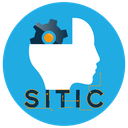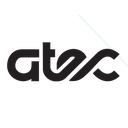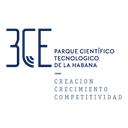Executive Secretary

2nd International Symposium on "Generation and Transfer of Knowledge for Digital Transformation"
SITIC2023
Propósito y alcance del evento
El desarrollo de las sociedades modernas no se concibe sin la informatización de ellas. La transformación digital de todos los procesos socio-económicos permite el incremento de su eficiencia y eficacia, para lo cual es necesario el empleo de las Tecnologías de la Industrialización avanzada, también llamadas Tecnologías habilitantes de la transformación digital. Esta revolución basada en la información genera un desarrollo continuo de los formatos y modos en los que se busca, recupera, procesa y utiliza la información.
No es posible avanzar en este ambiente de desarrollo sin lograr cerrar el ciclo de I+D+i, para lo cual la transferencia del conocimiento juega un papel principal. El conocimiento generado durante la investigación tiene que ser convertido en tecnologías útiles en la solución de problemas e introducidas en los procesos productivos. Por otra parte, el desarrollo de productos y servicios informáticos novedosos, que permitan alcanzar la independencia tecnológica y la generación de productos exportables no es posible sin la incorporación de los nuevos métodos computacionales y a partir del know-how propio.
El Simposio “Generación y Transferencia de Conocimiento para la Transformación Digital” está orientado a divulgar los principales resultados científicos alcanzados en el campo de las tecnologías de la información y promover un marco para el intercambio científico sobre estas, dentro del centro académico-científico y de este con el sector productivo y de los servicios; lo cual garantice la actualización del conocimiento existente en este campo y su transferencia hacia diferentes actores de la sociedad. En resumen, el Simposio estará enfocado a las tecnologías de punta en Computación y a la relación universidad - empresa en el campo de las TI basadas en la transferencia de conocimiento y la innovación.
El evento incluye cursos tutoriales, conferencias especializadas y presentaciones de ponencias.
Comité organizador
Presidente del Comité organizador:
Dr. Daniel Gálvez Lio. (dgalvez@uclv.edu.cu)
Presidente del Comité científico:
Dr. Rafael Bello Pérez. (rbellop@uclv.edu.cu)
Secretaria ejecutiva:
Dr. Gheisa Ferreira Lorenzo. (gheisa@uclv.edu.cu)Temáticas
· Relación Universidad-Empresa para el desarrollo de las TI: Transferencia de conocimiento en innovación en la industria cubana del software. Perspectivas para la exportación de productos y servicios informáticos. Encadenamientos productivos universidad-empresa. Experiencias y buenas prácticas en la exportación de software
· Información y Conocimiento para el Desarrollo: Gestión de Información y Conocimiento: sistemas, modelos y auditorias en el contexto empresarial y de la administración pública, biblioteca ciudadana, tendencias de los servicios de información. Alfabetización mediática e Informacional. Ciencia y Educación Abierta: políticas, acceso abierto, recursos educativos abiertos, revisión abierta de publicaciones científicas, datos abiertos y enlazados, ciencia ciudadana, infraestructura y servicios. Gestión de Datos de Investigación: buenas prácticas, Datos FAIR, uso de metadatos para describir set de datos, repositorios de datos de investigación, protección de datos, socialización de conjuntos de datos en entornos abiertos. Transformación digital: gobernanza/gobierno electrónico, preservación digital, gestión documental, políticas, herramientas y plataformas. Retos actuales en la formación del profesional la Información: Didáctica de las Ciencias de la Información, innovación educativa para la formación del profesional de la información. Evaluación de la producción y comunicación científica: bibliometría, indicadores de evaluación de la ciencia, sistemas de información de investigación (CRIS), rankings, técnicas de análisis y visualización de la información científica, métricas alternativas
· Ciencias de datos y Bigdata: Técnicas para el descubrimiento de conocimiento: Aprendizaje Automático no estándar, Inteligencia Artificial Explicable, Computación blanda y metaheurísticas, Algoritmos Distribuidos para el Aprendizaje Automático, Redes Neuronales Profundas, Minado de Datos Masivos, Procesamiento de lenguaje natural, Minería de texto, Análisis de sentimientos. Visión computacional y procesamiento y análisis de señales. Infraestructuras para la ciencia de datos: Análisis de datos basados en computación de alto desempeño y computación en la nube. Infraestructuras heterogéneas para ofrecer HPC y Bigdata. Plataformas de computación en la nube para el despliegue de servicios de supercómputo. Buenas prácticas en el empleo de técnicas DevOps. OpenStack como infraestructura de servicio para HPC y BigData. Aplicaciones de la ciencia de datos: Industria 4.0, IoT, Simulación de sistemas y gemelos digitales, Fábricas inteligentes
· Subevento: I Taller Internacional de Tecnologías y Aplicaciones de Web Semántica en el entorno de la Inteligencia Artificial de las Cosas Interoperabilidad entre aplicaciones y artefactos. Usabilidad y experiencia de usuario en entornos de aplicaciones de web semántica e AIoT. Representación e integración de datos en AIoT y Web Semántica. Modelos de control de AIoT y Web Semántica. Servicios públicos y aplicaciones Web Semántica basados en AIoT. Arquitecturas para Datos abiertos y enlazados en AIoT y Web Semántica. Uso de modelo y algoritmos de aprendizaje y machine learning en AIoT y Web Semántica. Búsqueda y recuperación de información a través de ecosistema de AIoT y Web Semántica
Conferencistas especiales:
· Dr.C. María Aurora Soto Balbón
· Dr. Fernando Ortiz-Rodriguez
· Dr. Tatiana Delgado Fernández
Comité Científico del Simposio
· PhD. Carlos Morell Pérez
· PhD. Yusely Ruiz González
· PhD. Alberto Taboada Crispi
· PhD. María Josefa Peralta González
· PhD. Grizly Meneses Placeres
· PhD. Manuel Osvaldo Machado Rivero
· PhD. Cruz Enríquez
· PhD. Yanet Rodríguez Sarabia
· PhD. García Lorenzo
· PhD. Amed Leyva Mederos
· PhD. Deborah Galpert Cañizares
· PhD. Carlos García González
Administrador del sitio y comunicaciones
Eng. Erik Silverio Pombrol
Normas para el envío de las contribuciones
Los trabajos deberán ser originales y adecuarse a las temáticas del evento. Las contribuciones serán sometidas a un proceso de revisión por parte del comité científico del simposio y evaluadas de acuerdo con criterios de rigor científico, actualidad y aporte a las áreas del conocimiento en los ejes temáticos fundamentales.
Los trabajos deberán ser escritos según el formato establecido en la convocatoria de la Convención Científica 2023 de la UCLV, en idiomas español o inglés con una extensión máxima de 6 páginas. Deberán ser subidos al sitio del simposio. Las ponencias aceptadas serán publicadas en las memorias de la convención bajo la Editorial Samuel Feijoó de la Universidad Central “Marta Abreu” de Las Villas, con ISBN 978-959-312-570-3.
Se gestiona la publicación en revistas científicas de versiones extendidas de las ponencias, para lo cual serán seleccionadas las ponencias según su rigor y nivel científico y de acuerdo a las características de la revista; entre ellas Revista Cubana de Ciencias Informáticas (https://rcci.uci.cu), Revista Cubana de Transformación Digital (https://rctd.uic.cu), y la Iberoamerican Journal of Science Measurement and Communication (https://ijsmc.pro-metrics.org). En el caso del Taller internacional de Web semántica, los trabajos serán publicados en la revista Frontiers in AI and Application (https://www.frontiersin.org/journals/artificial-intelligence)
Fechas de interés
· Plazo de envío de resúmenes y ponencias: 15 de septiembre, 2023
· Notificación a los autores sobre el resultado de la revisión de las ponencias: 1 de octubre, 2023
· Entrega de la versión final de los trabajos aceptados: 6 de octubre, 2023
Conferencias y Cursos tutoriales
Se impartirán conferencias magistrales. Está confirmada la presentación de forma presencial de la conferencia del Dr. Francisco Herrera, reconocido profesor del Departamento de Ciencia de la Computación e Inteligencia Artificial de la Universidad de Granada (Índice H 174); así como otras en forma presencial o virtual por otros reconocidos especialistas cubanos y extranjeros que serán anunciadas posteriormente.
Se impartirán cursos pre - eventos de forma virtual, entre los cuales están planificados hasta el momento:
1. Análisis, visualización y procesamiento de información geográfica.
· Profesor: Dr.C. Romel Vázquez.
2. Cómo proteger los datos de investigación.
· Profesor: Dr.C. Manuel Osvaldo Machado Rivero.
3. Diseño de políticas de Ciencia Abierta.
· Profesora: Dr.C. Grizly Meneses Placeres.
4. Revisiones Sistemáticas y Bibliometría para la Investigación Científica.
· Profesoras: Dr.C. María Josefa Peralta González y Dr.C. Grizly Meneses Placeres
5. Introducción a la Inteligencia artificial explicable (XAI).
· Profesores: Dr.C María M García Lorenzo and Dr.C Rafael Bello.
6. Métodos e implementaciones de aplicaciones del PDI/VC en el análisis de imágenes en función de la salud.
· Profesores: Dr.C Alberto Taboada Crispi and Dr.C. Yusely Ruiz González.
7. Web semántica.
· Profesor: Dr.C. Amed Leiva Mederos.
8. Big data y Ciencia de datos.
· Profesora: Dr.C Deborah Galpert Cañizares.
More
information about conferences and pre-event courses can be found on the
Convention website.
Vea nuestra relatoría aquí
Evento virtual
El simposio sesionará de manera presencial y virtual. El programa estará organizado en sesiones de trabajos donde estará disponible para cada ponencia aceptada, el texto en pdf, una presentación en formato pdf y un video de 10 minutos con la exposición oral. Toda esta información estará disponible de forma offline durante todo el periodo de desarrollo del evento. Los participantes podrán realizar comentarios o preguntas a los autores y conferencistas.
Tendrán acceso a todos los materiales los inscritos en el simposio.
Correo electrónico de contacto: sitic@uclv.cu| Cayo Santa María | |
| Cayos de Villa Clara VCL | |
| Cuba |
Sub events




